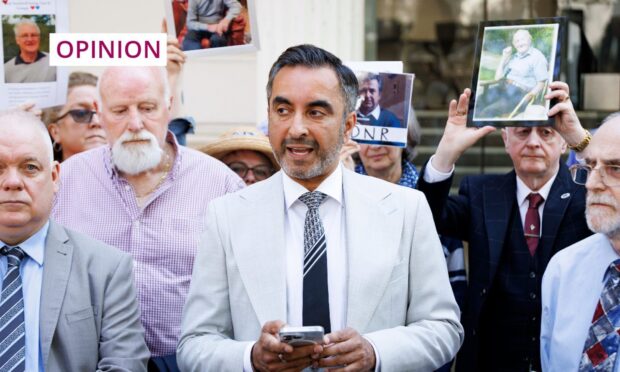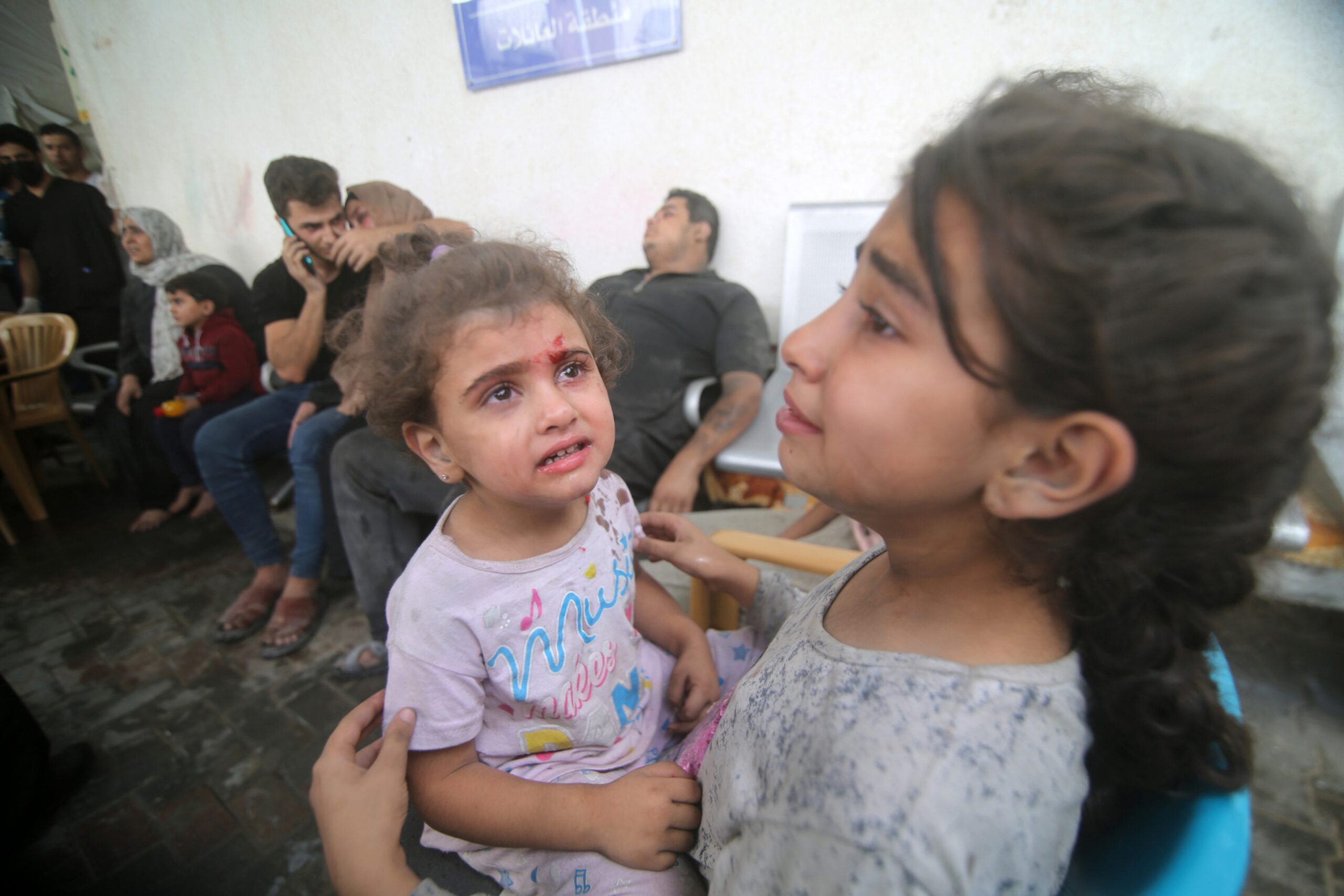It is, for sure, easy to snigger at the recent BBC Scotland documentary series The Firm, featuring Scottish human rights lawyer, Aamer Anwar.
Anwar, the face of high-profile campaigns and investigations surrounding the Lockerbie bombing, the murder of Surjit Singh Chhokar, and the death in custody of Sheku Bayoh, is shown in dapper suits, surrounded by black-clad damsels in vertiginous stilettos, like some high-class pimp in a fetish suite for lawyers.
Crucial information from his PA includes the fact that Aamer does not like getting his hair wet (I’m with you, son), while his dedication to sartorial elegance is such that the viewer half-expects him to say: “Sorry, your honour, must dash – appointment with my tailor.”
This is American TV show Suits in a Glasgow office, where cocktails compete with Greggs sausage rolls for the spotlight. But, funny as some of the criticism has been, it would be unduly harsh to dismiss The Firm for its glossy spin.
Who wants to watch some snooze-inducing series about the minutiae of case law? The danger here is not that hyperbole makes something out of nothing, but that we allow the nothing to obscure the something. There is a very serious underbelly to The Firm.
It is over 20 years since I first met Aamer Anwar. He was a recently graduated, passionate new lawyer representing the family of Surjit Singh Chhokar, a young Indian waiter murdered in Overtown, North Lanarkshire by white men on his way home from work. It was one of Anwar’s first big cases as a lawyer, and one of mine as a journalist.
I will never forget sitting in the Chhokar family home. His father, Darshan, and his mother, Gurdev, spoke little English, but the emotion in that room was overwhelming. They were broken.
Gurdev wore her grief like a second skin; it weighed every slow and laborious movement, her eyes deadened with sheer pain. Yet, it is her hospitality I remember; the way she spread pakora in front of me like an honoured guest instead of a white stranger whose country had stolen her precious son. I looked at the delicacies and burned with shame.
The bond between Aamer and the family was evident. I saw back then a quality so striking that never once in the years that followed have I been surprised by his rise to prominence. I can only describe it as heart.
The Firm starts tonight at 9pm on BBC Scotland! ⏰
The Firm follows @AamerAnwar as he represents the family of Sheku Bayoh – described as “Scotland’s George Floyd” – at the public inquiry into his death in police custody.
📺Full box set available on iPlayer. pic.twitter.com/Gw36B6k2iE
— STV Studios (@STVStudios) October 8, 2023
Yes, there was the aggression of a young-man-with-attitude, the thrusting ambition that makes him unparalleled as the self-publicist we see in The Firm. But I also saw his integrity, his compassion, and his deep sense of justice. Professionalism was important to him, but humanity drove him.
A few years later, I invited him to film a television interview. We discussed his motivation as a lawyer, the fact that he had been beaten up by Strathclyde police during a protest, because “this is what happens to black boys with big mouths”. Not only had he made legal history by winning his case against the police, he had switched his studies to become a lawyer because he now knew what he wanted to pursue in life: justice.
He was articulate as ever in that interview. But, later, one of the crew told me he had met Aamer in the toilets before filming. Did I know he was so nervous he was throwing up? I didn’t.
We need the people who work to achieve justice
This week’s devastating images from Israel and Gaza proved an interesting backdrop for watching The Firm. Aamer’s strength is taking big, societal issues – whether that’s racism or social justice generally – and making them personal. He reaches for the humanity in every situation. Both Hamas and the Israeli Government have done the opposite, obliterating the personal in a bigger societal picture.
They talk justice but remove humanity. People are described as “human animals” and humanitarian aid has been blocked. Justice can never flourish in such circumstances.
Each country is a jigsaw piece in an international picture. Watching the distraught father who cheered when his eight-year-old daughter’s death was confirmed because death was kinder than being a hostage made me see the connection to each individual fight for justice.
Thank God for the Aamer Anwars of the world. For what, essentially, is the difference between a bereaved dad in Israel or Gaza, and Surjit’s dad in Glasgow? They are all parents whose children have died because they were dehumanised. Each demands justice.
And that is the serious underbelly of The Firm. People who challenge power, who not only demand justice but work to achieve it, are vital to any society. Because history does not cleanse itself. Time alone does not heal injustice; it merely incubates it for future generations.
So, sure, watching The Firm prompted a smile. But it also prompted a memory of asking a now-famous Aamer to help someone in trouble. He helped without charge. And that is why, for all its spin, I haven’t laughed too hard at The Firm.
Catherine Deveney is an award-winning investigative journalist, novelist and television presenter


Conversation